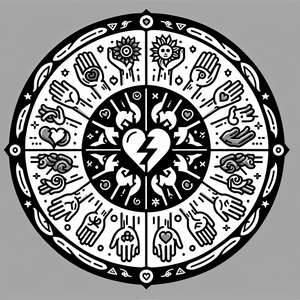The Hidden Costs of a Scandal: Drew Peterson's Financial Fallout

One of the most immediate financial impacts of Peterson's scandal was the astronomical legal fees he incurred. Following the disappearance of Stacy Ann Cales and the subsequent investigation, Peterson was charged with the murder of his third wife, Kathleen Savio, whose death was initially ruled an accidental drowning. Peterson was compelled to hire a team of high-profile attorneys to defend him, leading to a financial burden that stretched into the hundreds of thousands of dollars. Reports suggest that Peterson's legal expenses approached $1 million over several years, forcing him to consider the sale of personal assets, including his home and other properties, to cover mounting costs. This financial drain is a stark reminder of how legal battles can lead to financial ruin, particularly when a case garners significant media attention and public scrutiny.
Loss of Income and Career
As the public spotlight intensified, Peterson's career as a police officer came to an abrupt end. The stigma associated with his name not only impacted his professional life but also led to a significant loss of income. Following his arrest, Peterson was suspended from the police force and later chose to retire, leaving behind a stable salary and benefits that had previously supported his lifestyle. The transition from a respected law enforcement officer to a figure of public disgrace meant that Peterson could no longer rely on his pension or other income sources, dramatically altering his financial landscape. The loss of a steady paycheck, combined with mounting legal fees, created a precarious financial situation that further complicated his already dire circumstances.
Damaged Relationships and Support Network
Scandals often have a ripple effect on personal relationships, and Peterson’s case was no exception. The fallout from his actions and the subsequent media frenzy strained relationships with family, friends, and community members. Financial support from loved ones could have been a lifeline during these turbulent times, but many distanced themselves from him due to the negative attention and allegations surrounding his case. This isolation further compounded his financial struggles, as he lost not only emotional support but also potential financial backing from those who might have helped in times of need. The erosion of these relationships underscores how scandal can lead to a loss of both social capital and financial safety nets.
Long-Term Financial Repercussions
Beyond immediate legal fees and lost income, the long-term financial implications of Peterson's scandal are profound. His notoriety transformed him into a pariah in many circles, making it exceedingly difficult to secure employment or engage in business ventures. A tarnished reputation can have far-reaching consequences, and Peterson’s case illustrates how a single scandal can lead to permanent damage to one’s professional viability. Local businesses and potential employers were wary of associating with someone whose name had become synonymous with tragedy and crime. The loss of job opportunities, combined with ongoing legal obligations, created a cycle of financial instability that was difficult to escape.
The Broader Implications of Public Disgrace
The case of Drew Peterson serves as a cautionary tale about the hidden costs of scandal. It not only reflects the personal financial fallout for one individual but also highlights the societal consequences of public disgrace. The impact of a scandal extends beyond the individual, affecting families, communities, and even industries. The loss of trust, the disruption of social and professional networks, and the potential for long-lasting stigma can create a cycle of hardship that is difficult to escape. Peterson's case serves as a reminder of how public disgrace can lead to community division and a loss of faith in institutions, such as law enforcement, further amplifying the costs of scandal.
Drew Peterson’s story is not just one of crime and punishment; it is a vivid illustration of how scandal can have dire financial implications. From the relentless legal fees to the loss of career and strained relationships, Peterson’s financial fallout epitomizes the hidden costs associated with infamy. As society continues to grapple with the consequences of public disgrace, Peterson’s case serves as a reminder of the delicate balance between reputation and financial stability, urging us to consider the far-reaching effects of our actions and the scandals that can forever alter lives. Whether through legal battles, lost income, or damaged relationships, the hidden costs of a scandal are often far greater than what meets the eye. Understanding these repercussions is crucial not only for those directly involved but also for society at large, as we navigate the complexities of ethics, reputation, and accountability in an increasingly interconnected world.
Crisis Communications Manager
Edelman, FleishmanHillard
Job Responsibilities
Develop and implement communication strategies to mitigate damage to an organization’s reputation during a scandal.
Collaborate with legal teams to ensure messaging aligns with ongoing investigations and legal proceedings.
Requires strong writing and editing skills, as well as experience in public relations or journalism.
Forensic Accountant
Deloitte, PwC, KPMG
Job Responsibilities
Analyze financial records to identify discrepancies or fraudulent activities related to scandals or legal disputes.
Prepare detailed reports that can be used in court or internal investigations, requiring keen attention to detail and analytical skills.
Must hold a CPA designation and have experience in forensic accounting or financial auditing.
Reputation Management Consultant
Reputation.com, BrandYourself
Job Responsibilities
Advise individuals or organizations on strategies to rebuild and maintain a positive public image following a scandal.
Monitor social media and news coverage to assess public sentiment and provide actionable insights.
Requires expertise in digital marketing, social media strategy, and crisis management.
Legal Compliance Officer
Bank of America, Johnson & Johnson
Job Responsibilities
Ensure that organizations adhere to laws, regulations, and internal policies to prevent scandals and legal issues.
Conduct regular audits and risk assessments to identify potential compliance risks and implement corrective actions.
Requires a law degree or relevant certification (e.g., Certified Compliance & Ethics Professional) and experience in regulatory compliance.
Social Media Analyst
Google, Facebook
Job Responsibilities
Conduct analyses of social media trends and public sentiment regarding a brand or individual, particularly during a crisis or scandal.
Develop reports and strategies to address negative perceptions and enhance brand reputation online.
Strong skills in data analysis and familiarity with social media platforms are essential; experience with tools like Hootsuite or Sprout Social is a plus.


